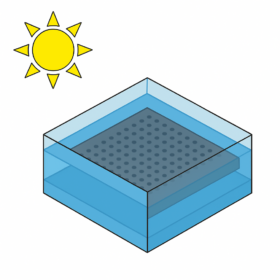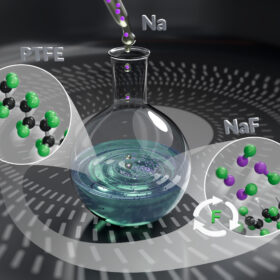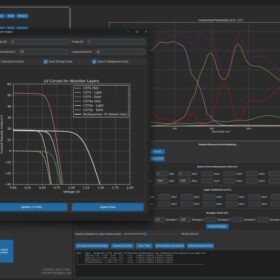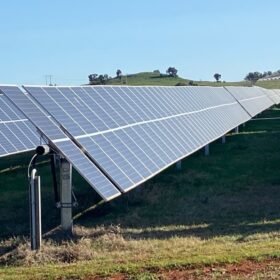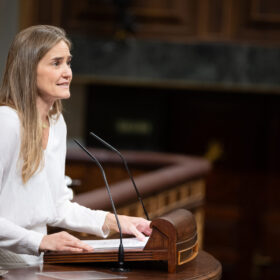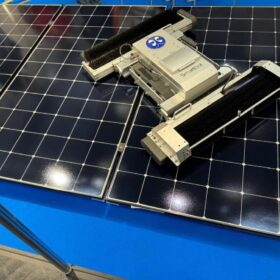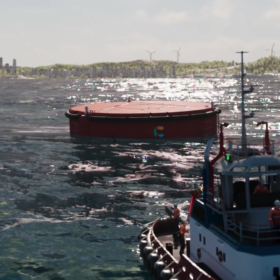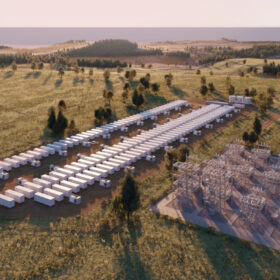Outdoor testing identifies factors contributing to perovskite solar cell degradation
Tests conducted by a research team in outdoor environments in Spain and Poland have demonstrated a strong correlation between perovskite solar cell degradation and the combined effects of climatic and operating conditions. The scientists found that open-circuit operation accelerates degradation, whereas operation at the maximum power point and under short-circuit conditions has a lower impact.
Researchers test solar panel cooling using stagnant water layer
Researchers have developed a stagnant water layer cooling concept and tested it using seawater, tap water, and desalinated water. The panel temperature decreased by up to 8.2 °C, while power output increased by approximately 28%.
Novel fluorine recovery method promises polymer recycling benefits
Researchers have developed a novel defluorination method to dispose of PTFE, used in solar componentry and electric cable coating, that converts its constituent fluorine compounds and could enable eco-friendly polymer recycling.
New open-access simulation software for solar cell modelling
Developed by a professor at the Polytechnic University of Catalonia, the Soley software is claimed to enable precise optoelectronic modeling of photovoltaic devices and accurately reproduce the behavior of photodiodes under illumination.
Solar tracker manufacturer offers new terrain-following solution
Spain-based manufacturer PV Hardware has released a terrain-conforming tracker support, enabling up to 2° of variation between posts and enables solar installations on difficult sites without increasing environmental impact or construction costs.
New South Wales invests in Spanish hybrid renewable energy platform
The New South Wales Treasury Corporation, the state’s sovereign investor, has entered into a partnership with United Kingdom-based developer Equitix to grow its renewable energy hybridisation platform in Spain.
Spanish parliament rejects grid reform law proposed after April blackout
Spain’s parliament has rejected a legislative package aimed at reinforcing the grid and scaling up battery energy storage following the 28 April 2025 blackout.
Smartbox presents 100% autonomous cleaning robot
Spanish robotics manufacturer Smartbox has launched an autonomous solar panel-cleaning robot that comes with two plug-and-play batteries, each with 4.5 hours of battery life, and is capable of cleaning up to 4,000 panels in 10 hours.
Carnegie lands $2.1 million to progress wave power generation project in Spain
Wave energy developer Carnegie Clean Energy reports its subsidiary has received $2 million (USD 1.2 million) from the Spanish government to progress the development of its wave power technology, called CETO.
Is solar really root cause of Spain’s massive power outage?
Some media outlets have speculated that Spain’s April 28 blackout may have been caused by a disconnected solar plant, but DNV grid analyst Andrea Mansoldo tells pv magazine that it was likely due to a combination of grid weakness and low-frequency oscillations.

